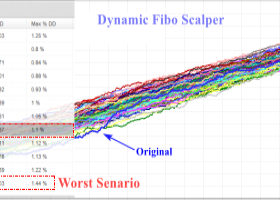Analysts from TDS think that after the UK referendum results, the Bank of England (BoE) will cut the interest rate to zero.
“We expect the UK to enter a brief and shallow recession as heightened uncertainty from the Leave referendum win weighs on both household and firm demand. While the exchange rate will help offset some of this weakness via exports, its boost will be limited.”
“Inflation will jump to over 3% y/y by mid-2017, but the Bank of England will turn a blind eye to this as it focuses on medium term price pressures.”
“The Bank of England, however, will stimulate. There remains a great deal of uncertainty over the timing, composition, and extent of its policy, but ultimately we expect a rate cut and an expansion of QE. While observed inflation will shoot higher over the course of this year and next, the Bank will be focused on medium-term inflation risks, and with demand stagnant over the coming years, will focus on supporting spending rather than fighting an inflation rate boosted by a one-off adjustment in the exchange rate.”
“We think the first step will be to cut Bank Rate to zero. The balance of odds favours a 50bps cut at the August MPC meeting (which coincides with the quarterly Inflation Report and press conference), though we wouldn’t push back hard against a scenario of two 25bps cuts, with one in August and another in September. With rates markets currently pricing only a 72% chance of a cut by September, we think there is an appealing opportunity here.”
“Quantitative easing would then follow in November. While we hesitate to be too specific over the precise timing and amounts at this point, as much would depend on the evolution of the economy between now and then, we think an initial £75bn QE package will be announced at the November MPC meeting, with £50bn QE announced at the following February meeting, and again another £50bn at the May MPC meeting if required.”



